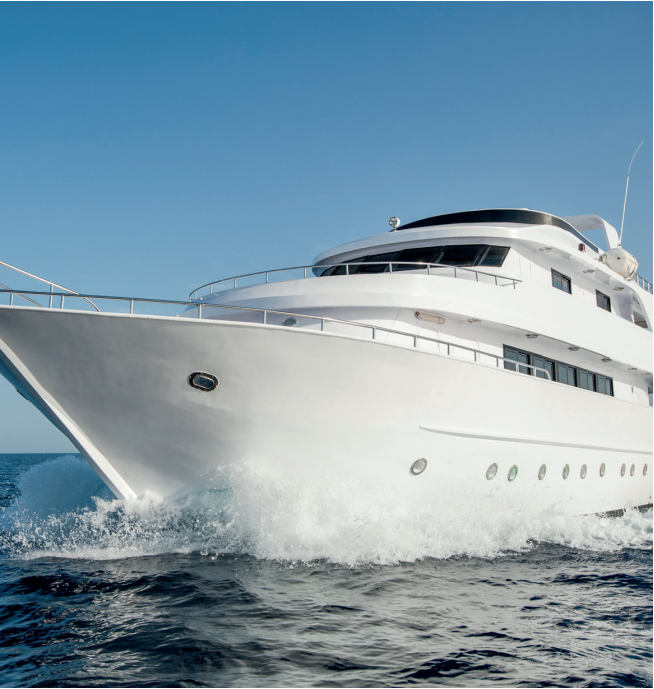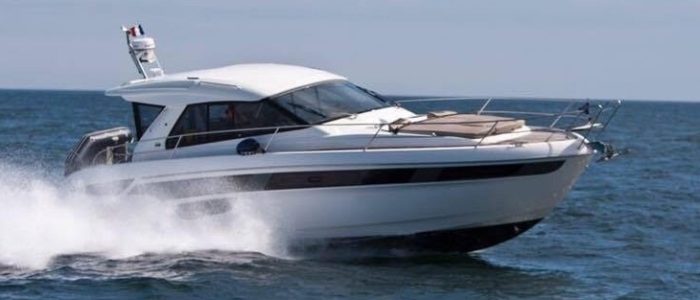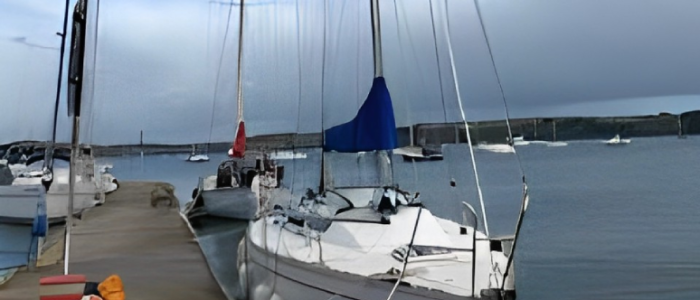

There comes a time in the life of every boater when they decide it is time for a change. You have had your boat – and it’s been great while it lasted. However, now you may want a faster, younger or bigger (or possibly smaller) model. Or perhaps simply move from sail to power, or power to sail.
Why move?
Your motives may be many. Possibly you are no longer as active as you once were and now is the time to move from sail to power. Maybe you bought your first boat with limited knowledge and now have a better view of what exactly suits you. It could be that your first boat was simply a trial – to see if you liked boating – and you have now decided that you do and want something better (= more expensive!).
Possibly the ‘joys of berthing’ have convinced you that you now need a boat with greater and easier manoeuvrability in crowded marinas using features such as a bow thruster, twin engines, joystick control and automatic fenders. Perhaps you want to cash in part of your pension, have just sold your business, have won the lottery or received a great inheritance. Whatever your source of finance, you want to enjoy the benefits of it.
Making the move – sell and buy, or buy and sell?
The first question is – do you have to sell your current boat first – or can you buy your next boat without having sold your first one? This is primarily a question of finance. If you have the funds, there is no need to wait until your current boat is sold.
However, don’t forget that you then have expenses on two boats, not one, until your current boat is sold. Of course, you could try and do a part-exchange. This might work for you – however part-exchanging is far more problematic than part-exchanging a car.
If it’s a private sale and purchase, you are very unlikely to find someone who has a boat that you want and who also wants the boat you currently have.
If it’s via a broker, then usually the broker would have to take your boat into stock. Most brokers are reluctant to do this, as their business model is a broking one, unlike most motor traders. They rarely take into stock and sell on their own behalf. For those brokers that are willing to take boats into stock, they are often only willing to do so if the boat you are buying is of much higher value than the one you are selling. Also, you won’t be surprised to hear, they often don’t give great prices for boats they buy. Therefore, you usually get best value by separating out the selling part and the buying part of getting your next boat.
Making the move – what do you want, really really want? (with apologies to The Spice Girls!)
Next, consider exactly why you are making the move. If it is for space on board – then this is the most common reason why people move. However, there is an unfortunate rule of thumb about this – the price of a boat is (very roughly) proportional to the cube of its length, everything else being equal.
So – to move from, say a 25 footer to a 50 footer, this doesn’t just double the cost – it multiplies it by a factor of (maybe) about 8 times. This ‘cubing rule’ is logical if you think about it – you are increasing not just the length, but also the beam and the height.
Bottom line – if you want to move to something significantly bigger, you have to be prepared to spend the money. However, at Go Earth our speciality is boat procurement, so we can help you save at least a proportion of that extra cash. That’s what we do.
Some factors to take into account include:
- Budget – capital expenditure and ongoing expenses
- Will you be travelling further afield – in which case, this impacts:
- Boat size and ocean-going capability
- Storage requirements on board
- Specialist kit, such as water-makers
- Boat category
- Insurance
- Communications – such as satellite radios
- The wishes, experience and capabilities of your crew
- Internet access- such as the need for your daily fix of Facebook?
- For a superyacht, you may not be able to get into some local marinas and harbours. So you would anchor off and use a tender to get ashore. You would therefore need to budget for a decent tender – one that will get you comfortably ashore even if the weather is a bit ‘dodgy’.
- You may be using a crew for the first time.

WHERE TO GET ADVICE
Having had a boat already, you already know a bit about boating. However, if you are moving up, you may be moving into a different league, with different issues, different technologies, a different mix of good and not-so-good brands with different makes and models. In particular, you may be spending more than you did on your current boat. Indeed, it is not uncommon for our clients to spend substantially more on their next boat than their current one. You need to get it right. At Go Earth, we argue that you still need unbiased advice from a trusted representative that is acting on your behalf – on the buyers behalf, not the sellers. This is a service that we provide.
When we first started the company, we expected the majority of our clients to be people buying their first boat. In fact, we have had roughly a 60/40 split in favour of people buying their second or third or even fourth boat. We have often heard the comment “we wish that we had known about you when we bought our first boat!”. Our initial consultations are free – that is, free of cost, free of hassle, free of any commitment. We have found that the very act of starting a boat search with us helps our clients refine their requirements. It varies of course. Some clients want a specific make and model of boat; others are quite unsure. Some stick clearly to their initial requirements; some change them significantly. The point is that you should go through the process to ensure that at the end of it you have the right boat for you.
PRE-VISITS
If you are very busy and want to ensure that you only need to visit boats that are seriously worth your time, then we can do ‘pre-visits’ for you. We visit the boats, take numerous photographs, check out the boats; and make reasoned recommendations for you. Unfortunately, just relying on the broker’s descriptions does not guarantee that you will get all the information that you need. These ‘pre-visits’ can save you time and hassle; although in general it is only worthwhile for boats above a certain budget level, and if your time is better spent on other things, such as running your business.






